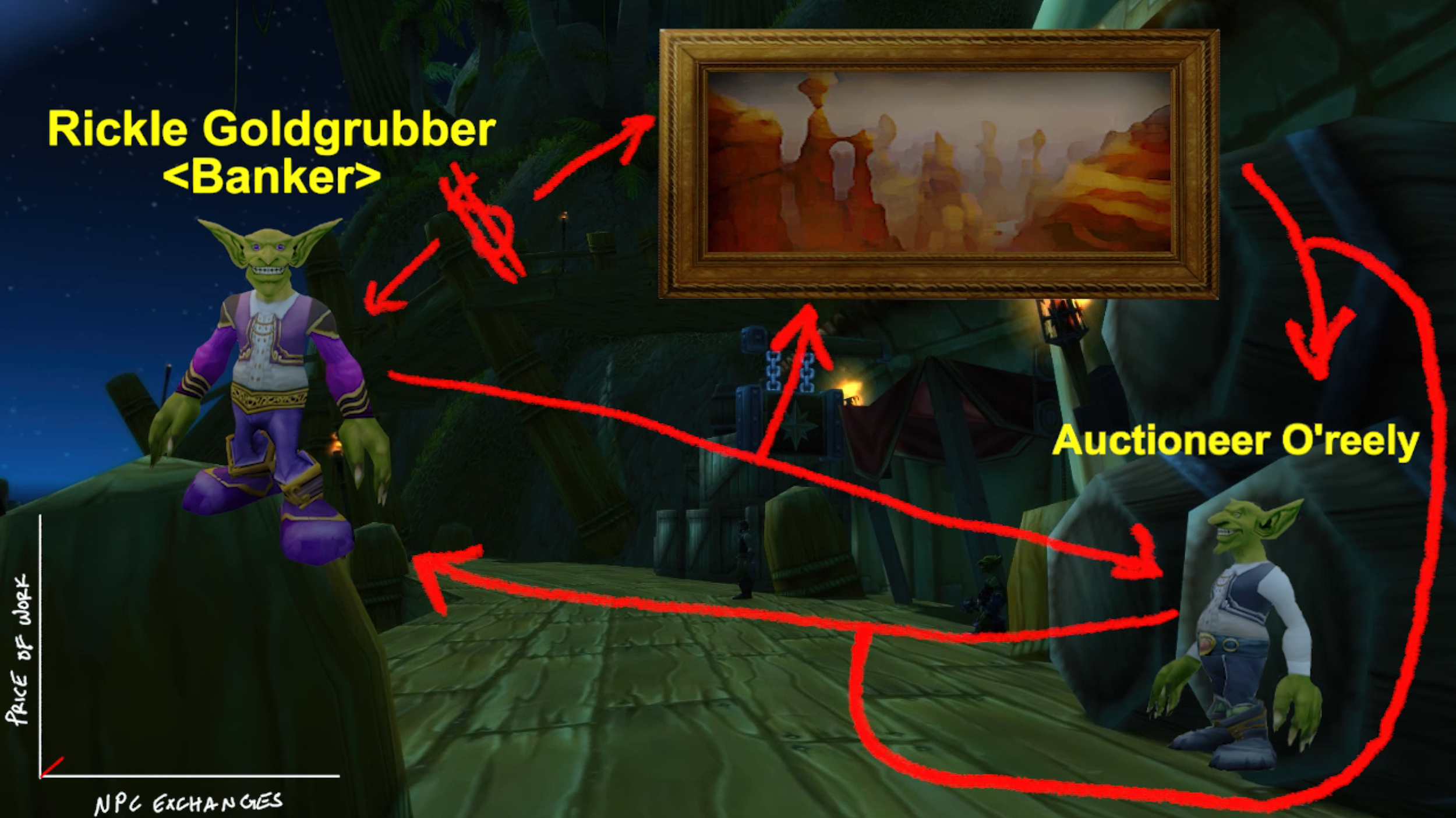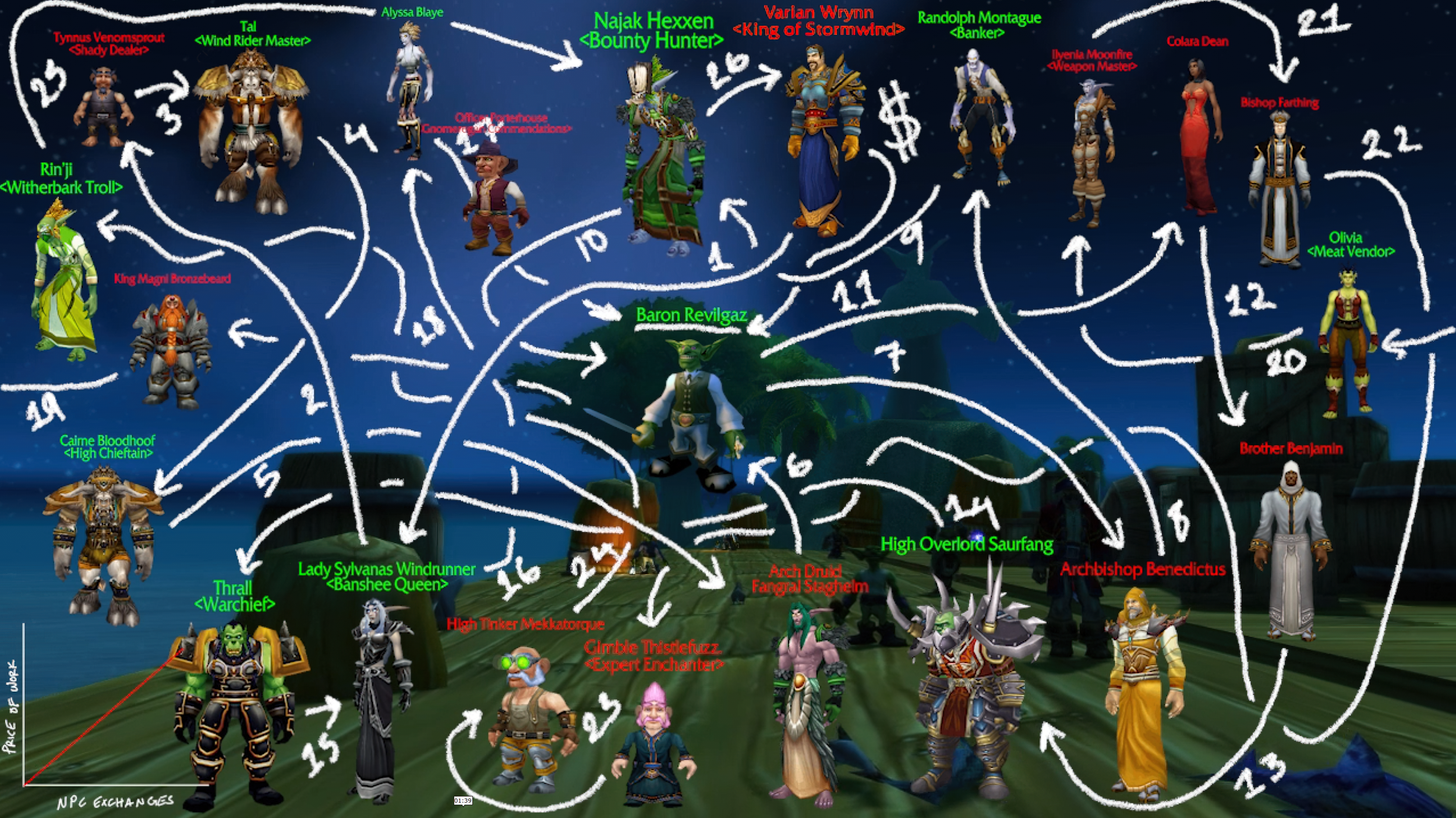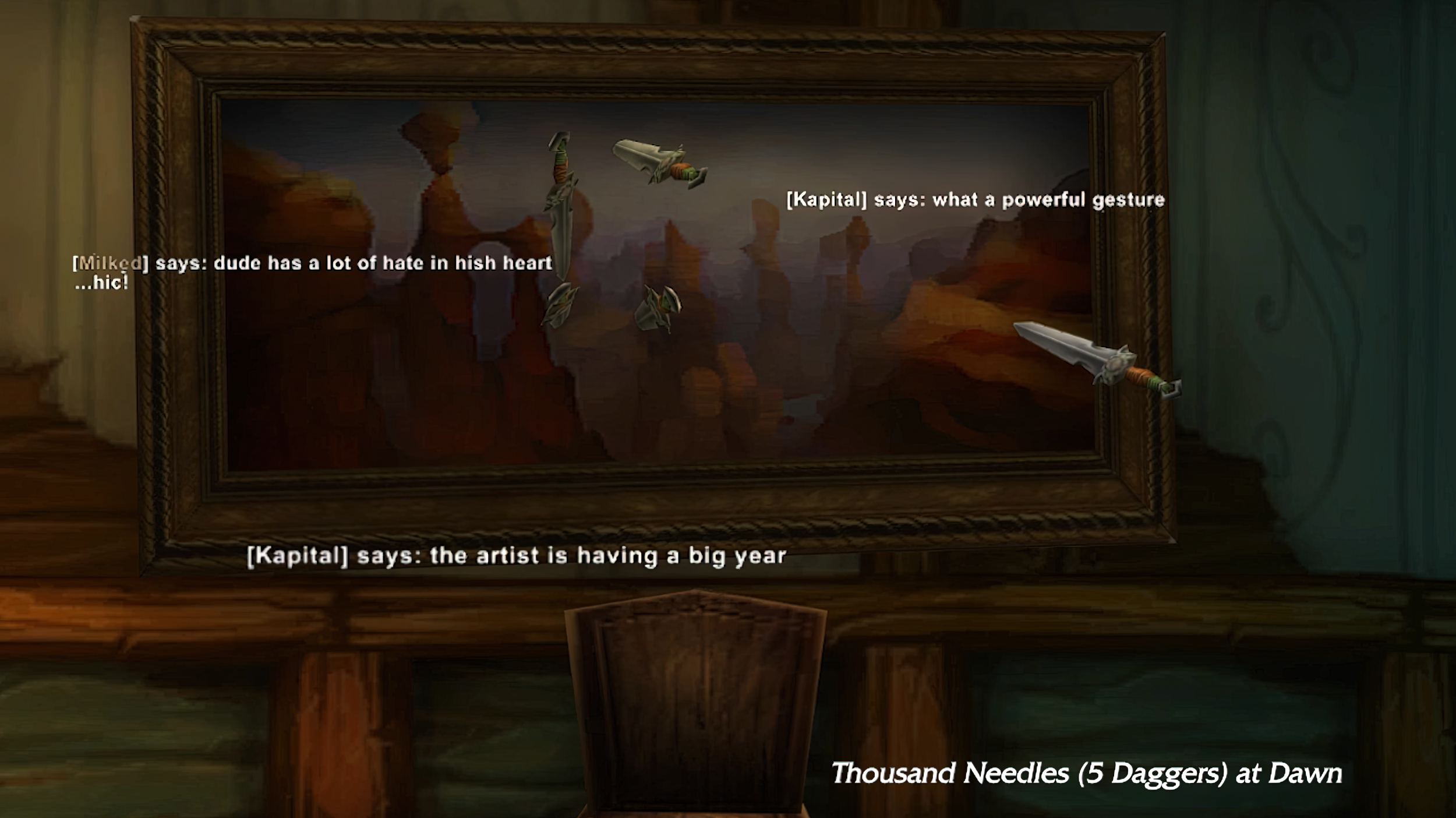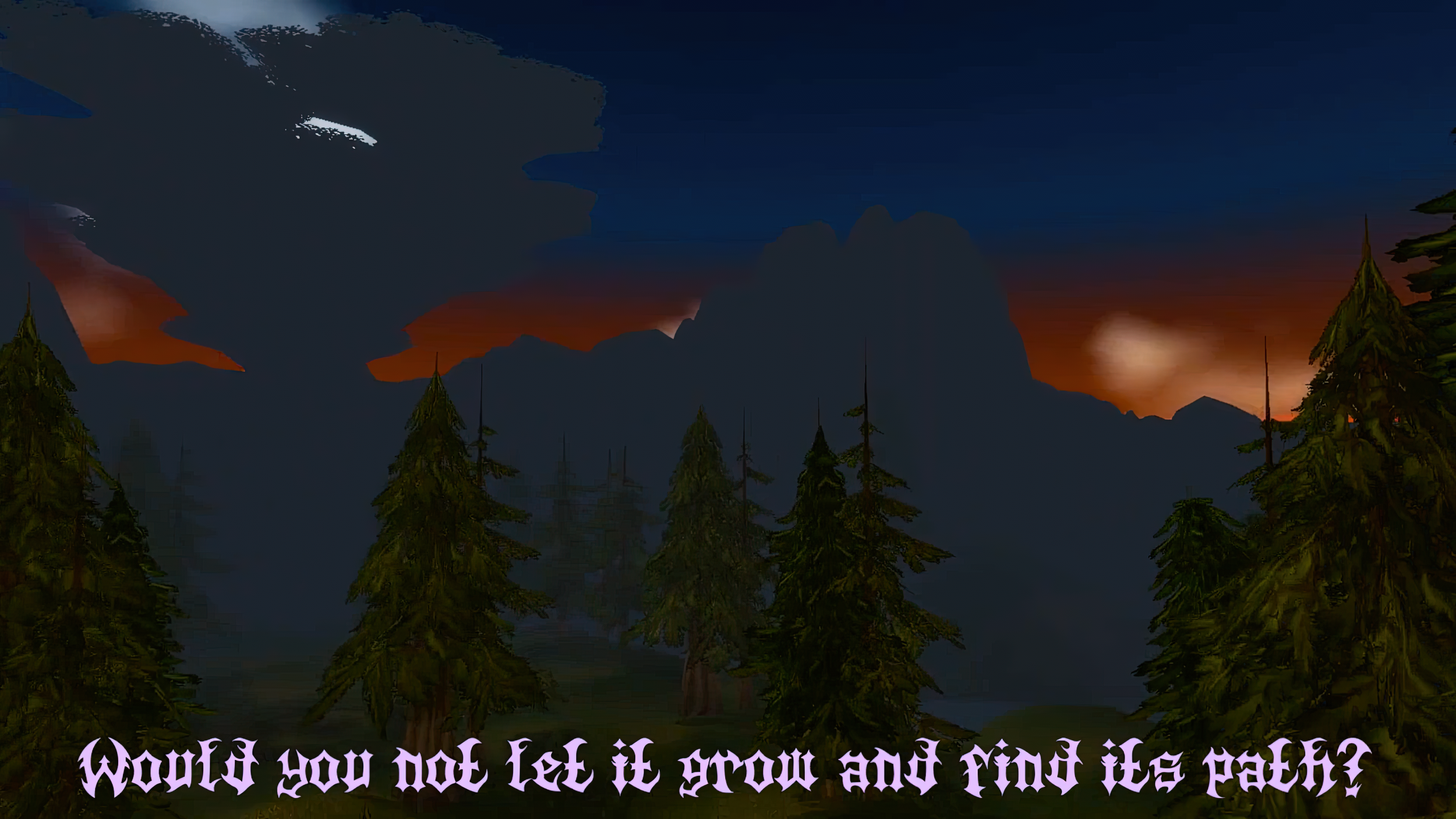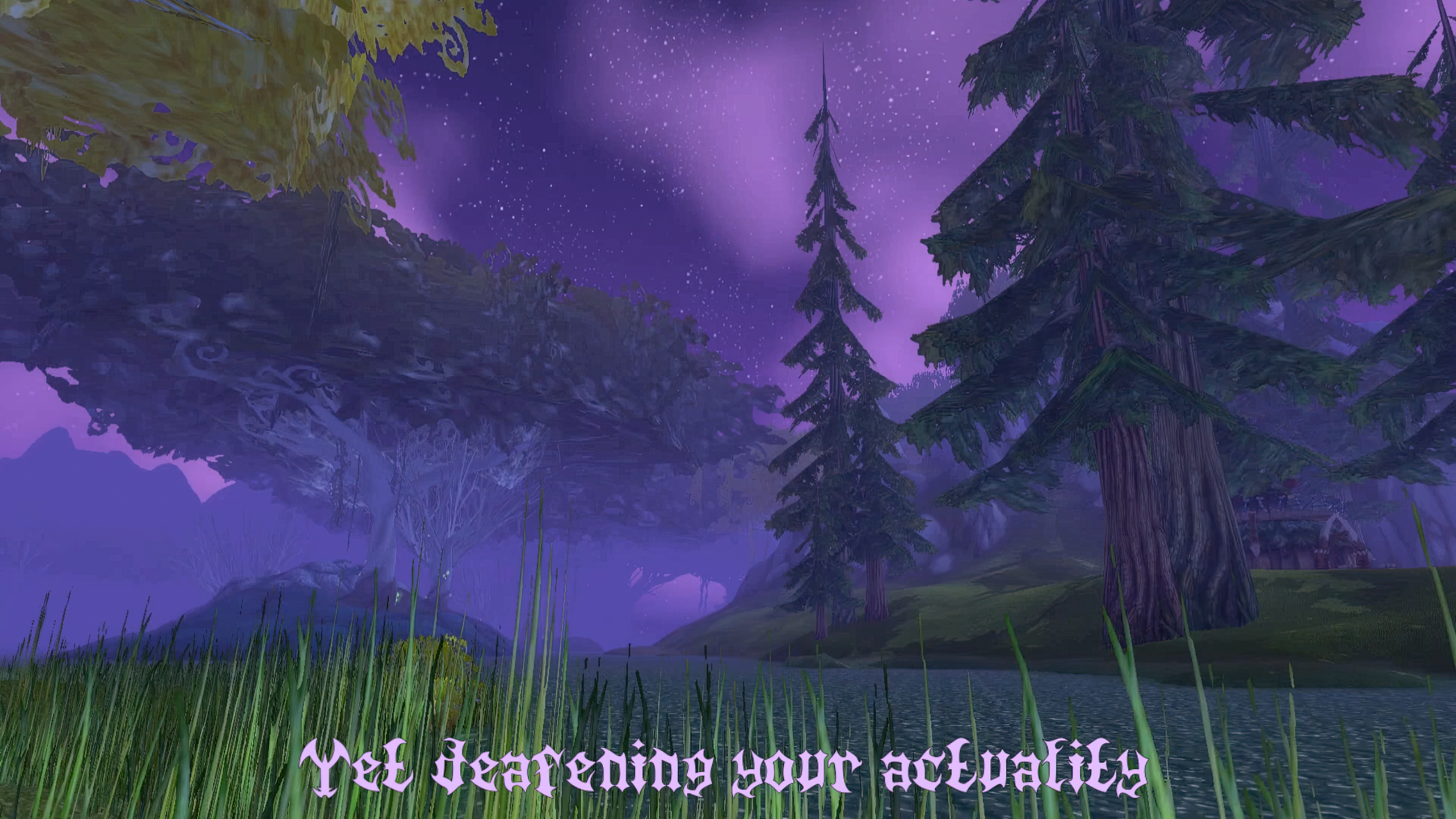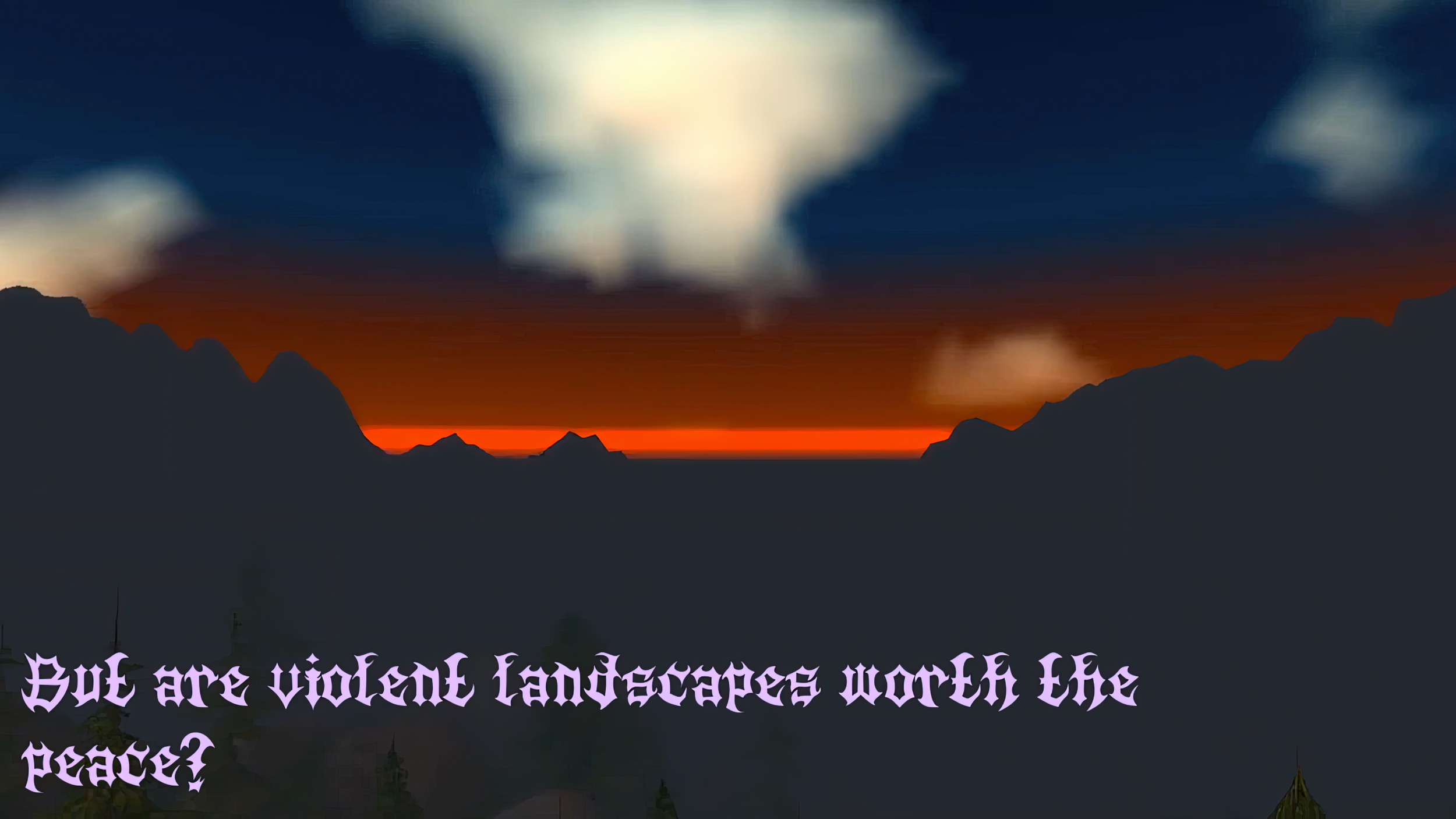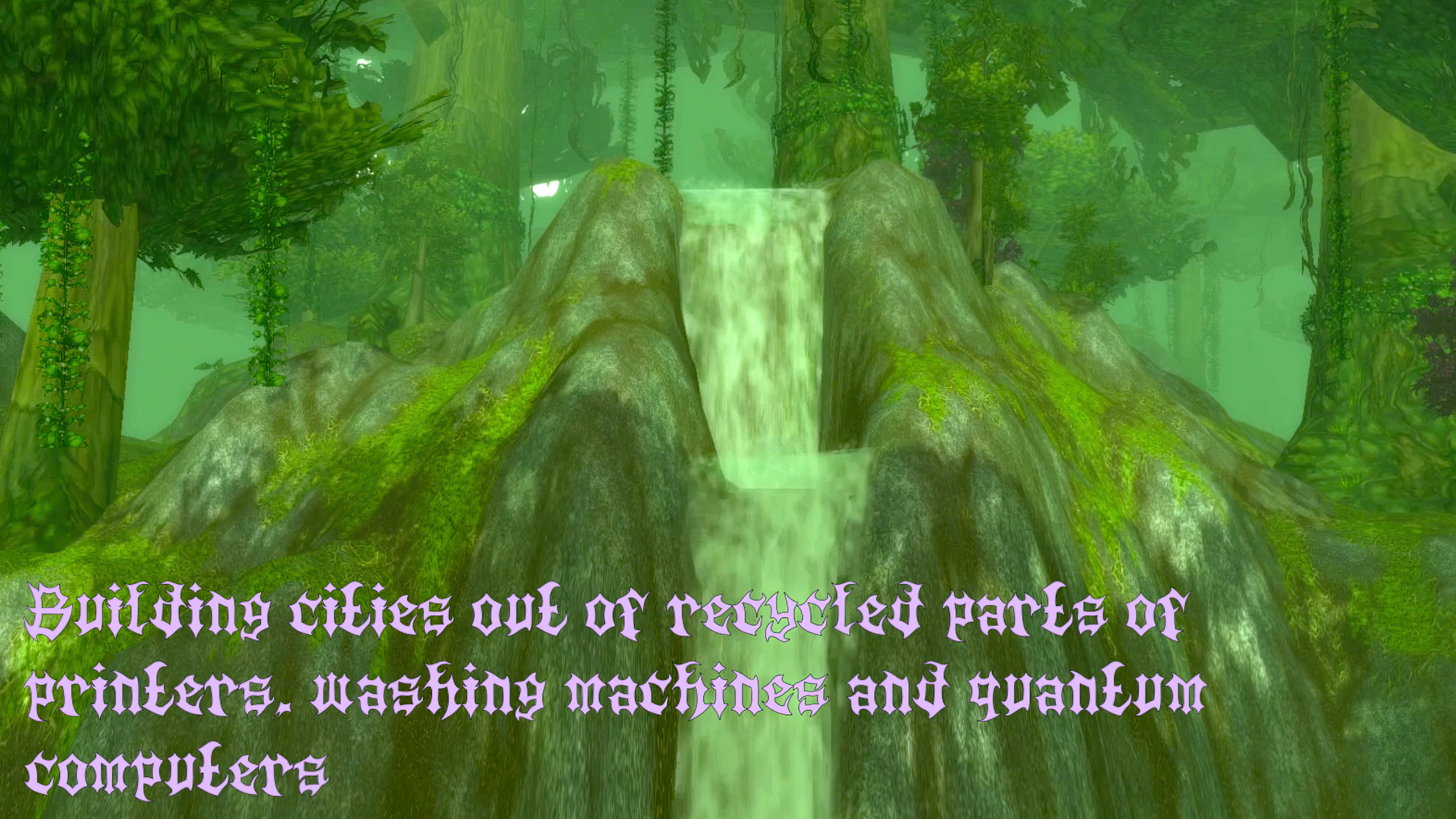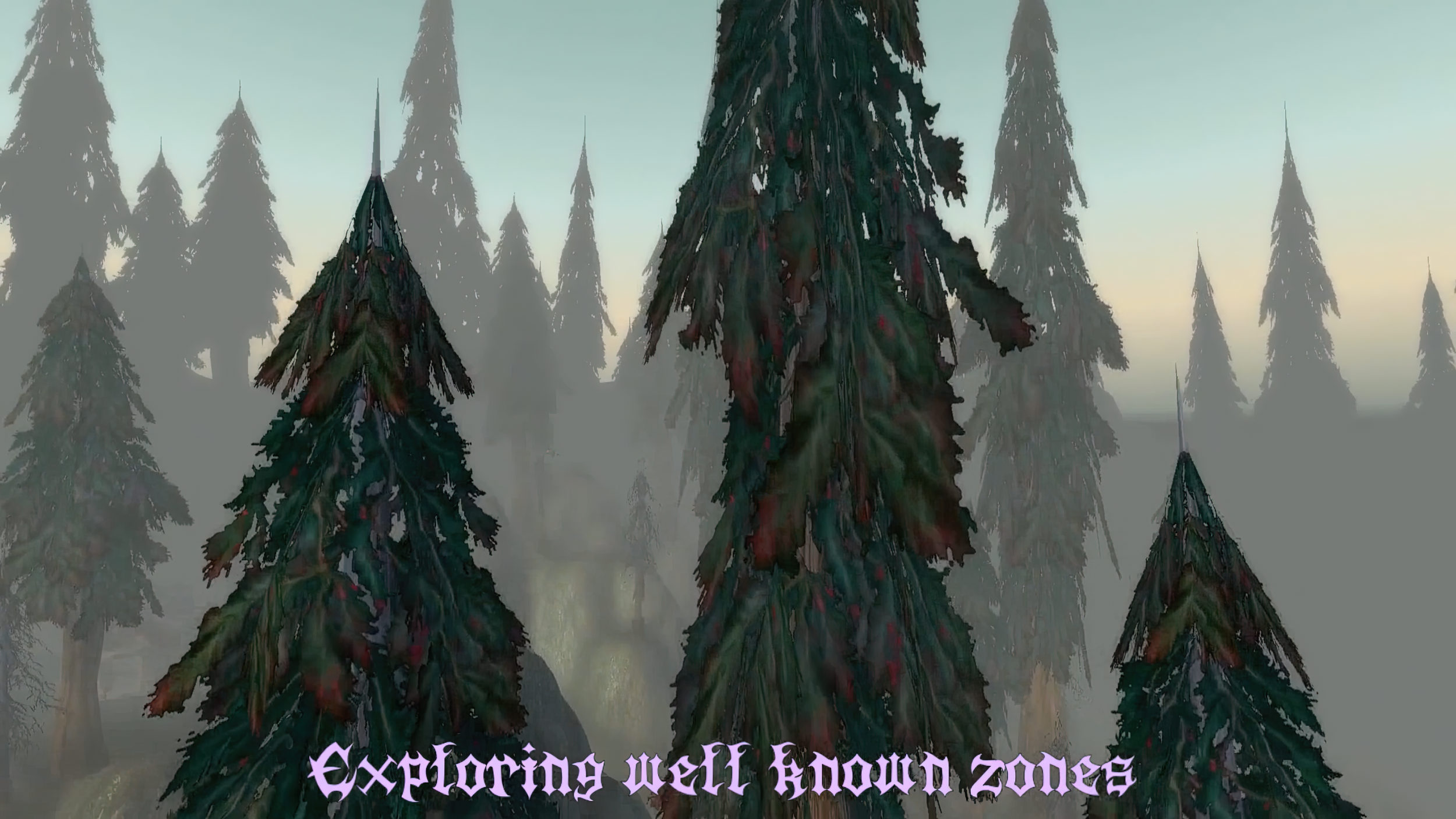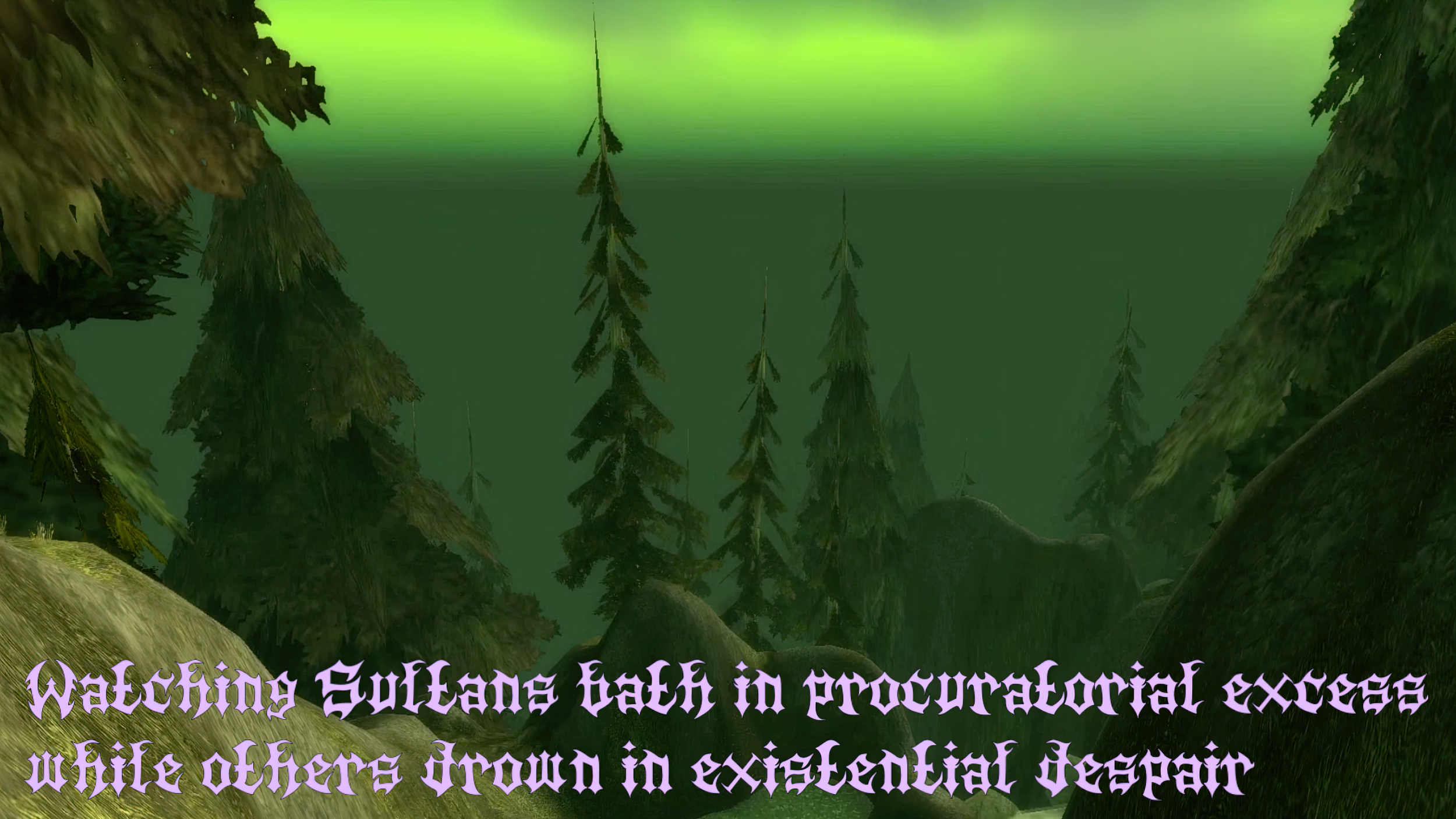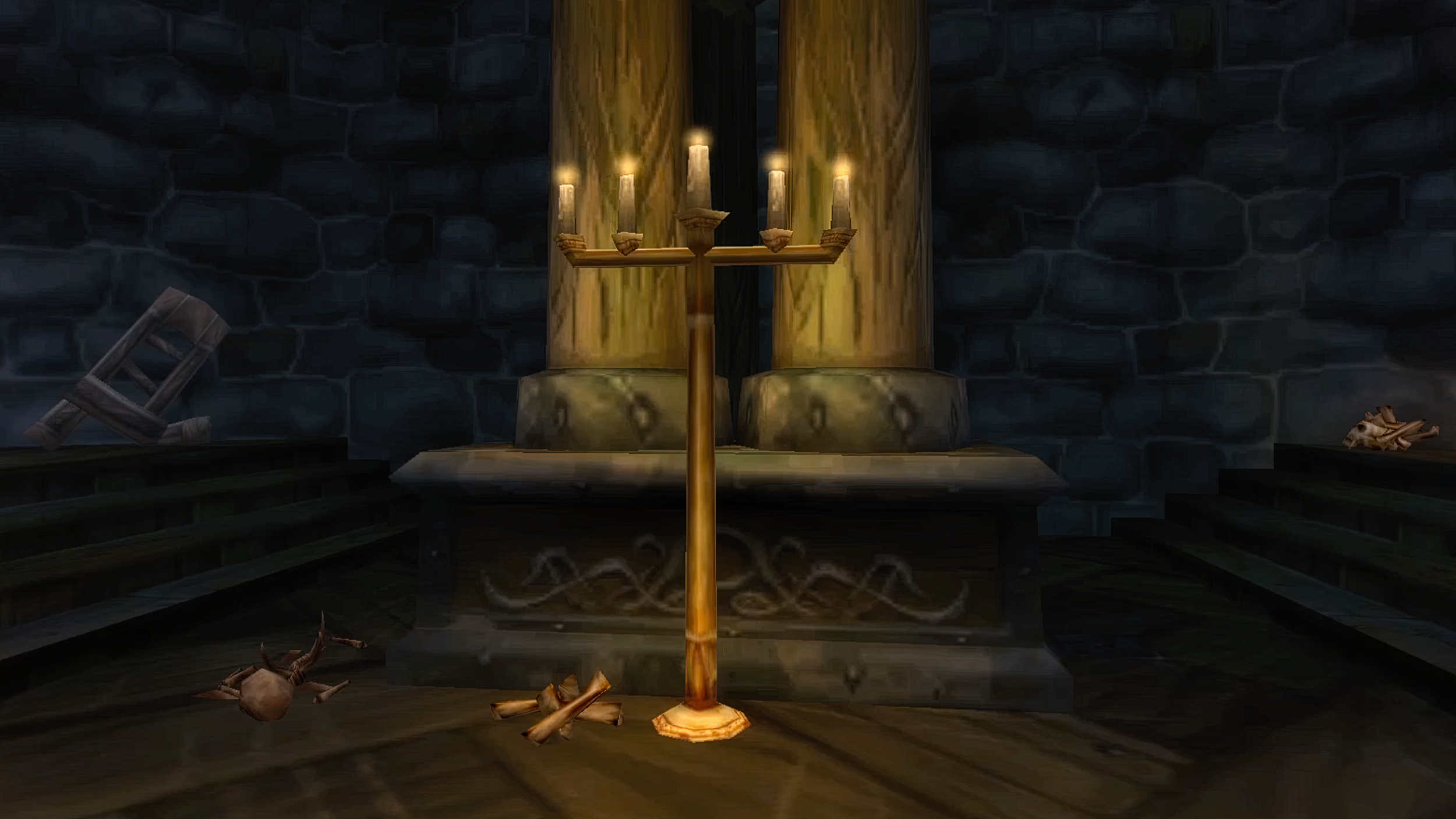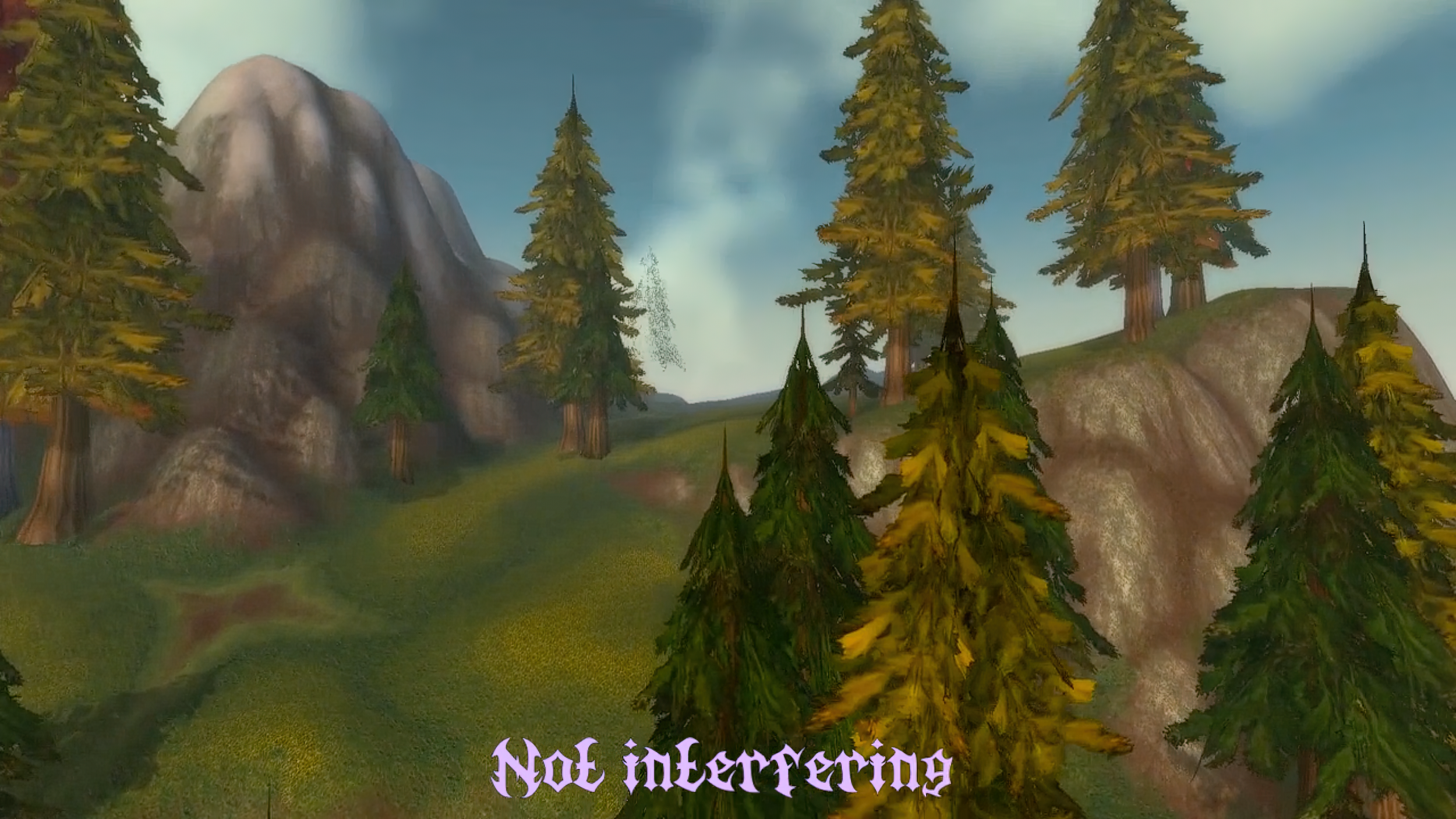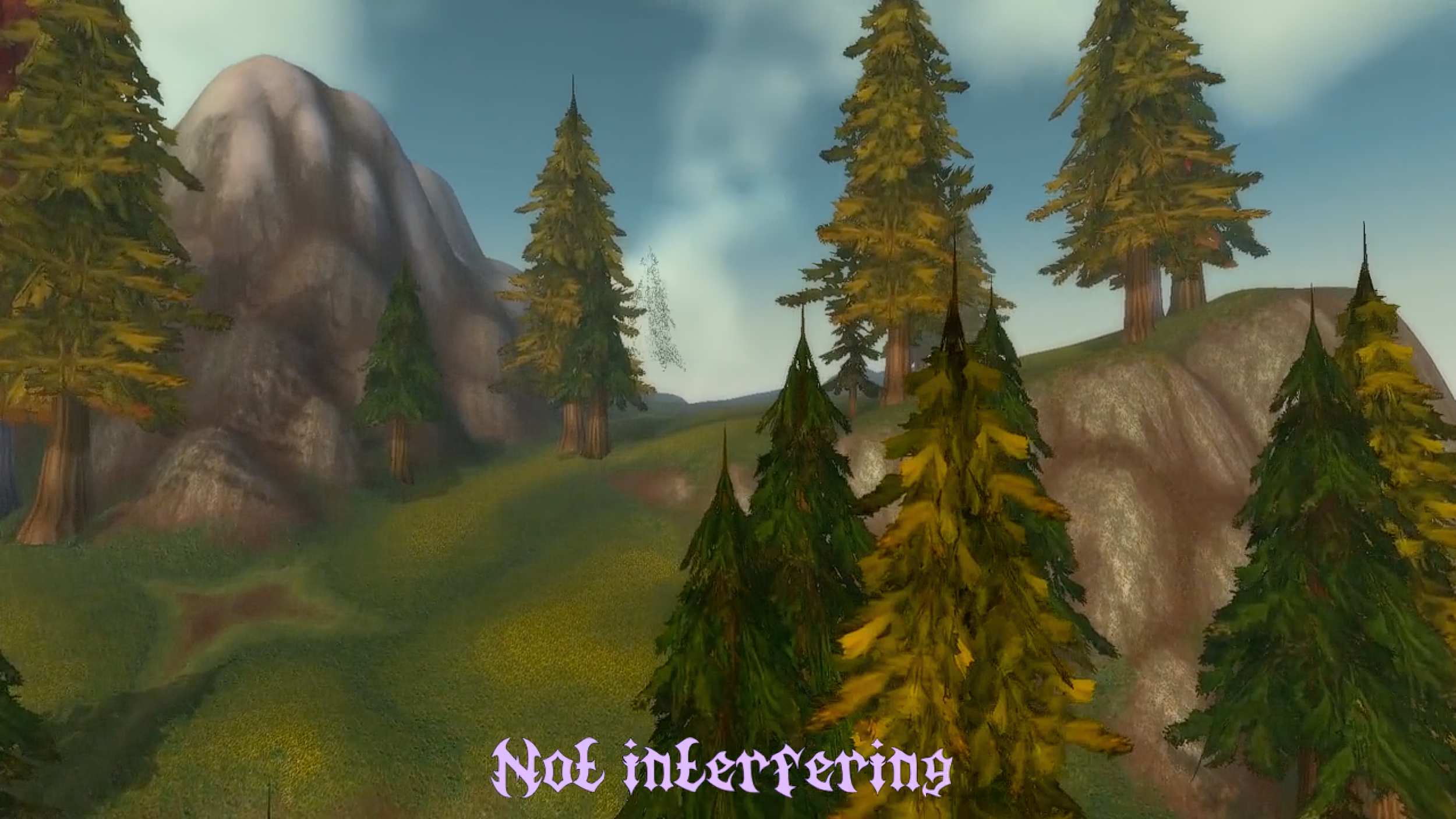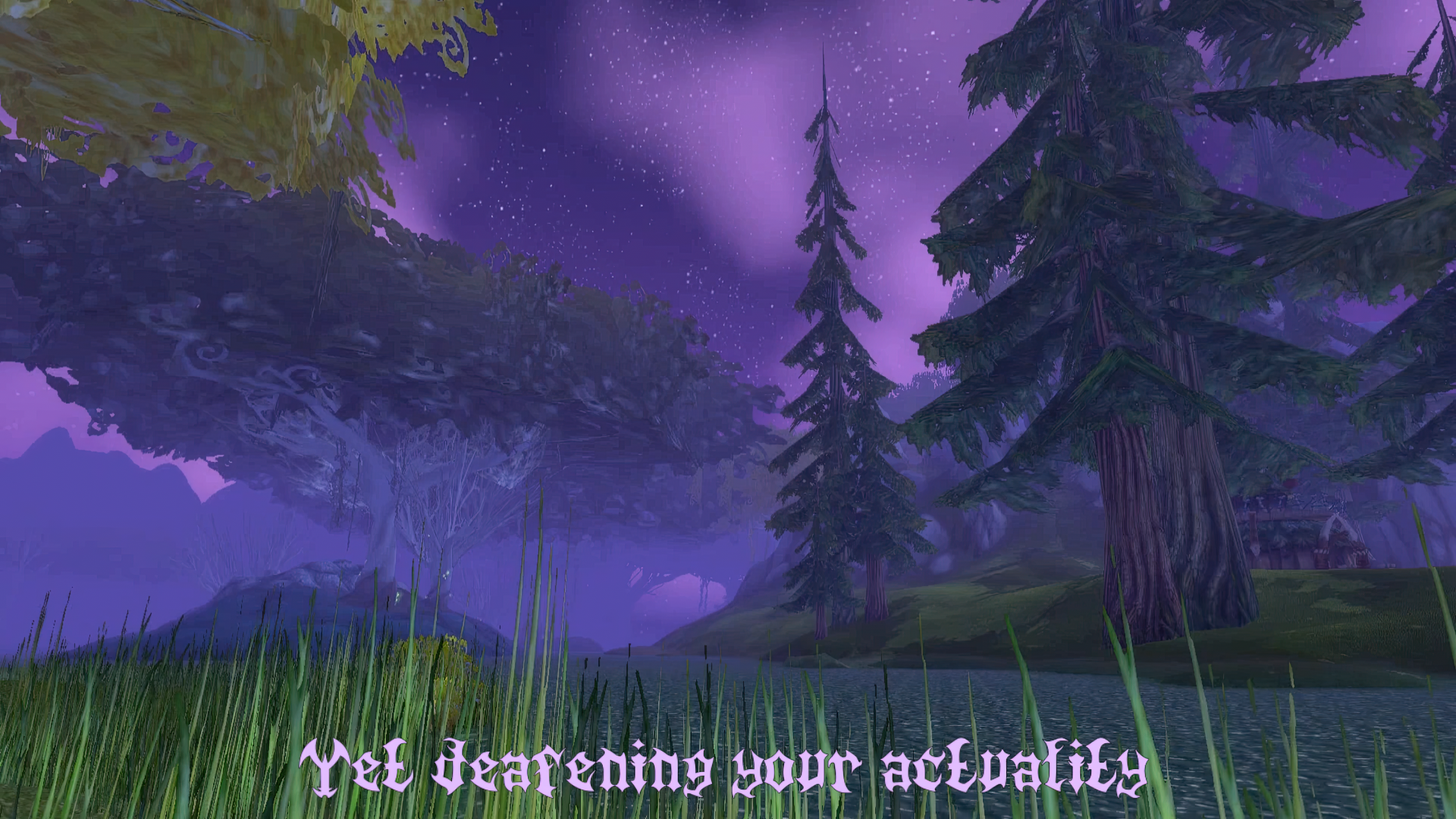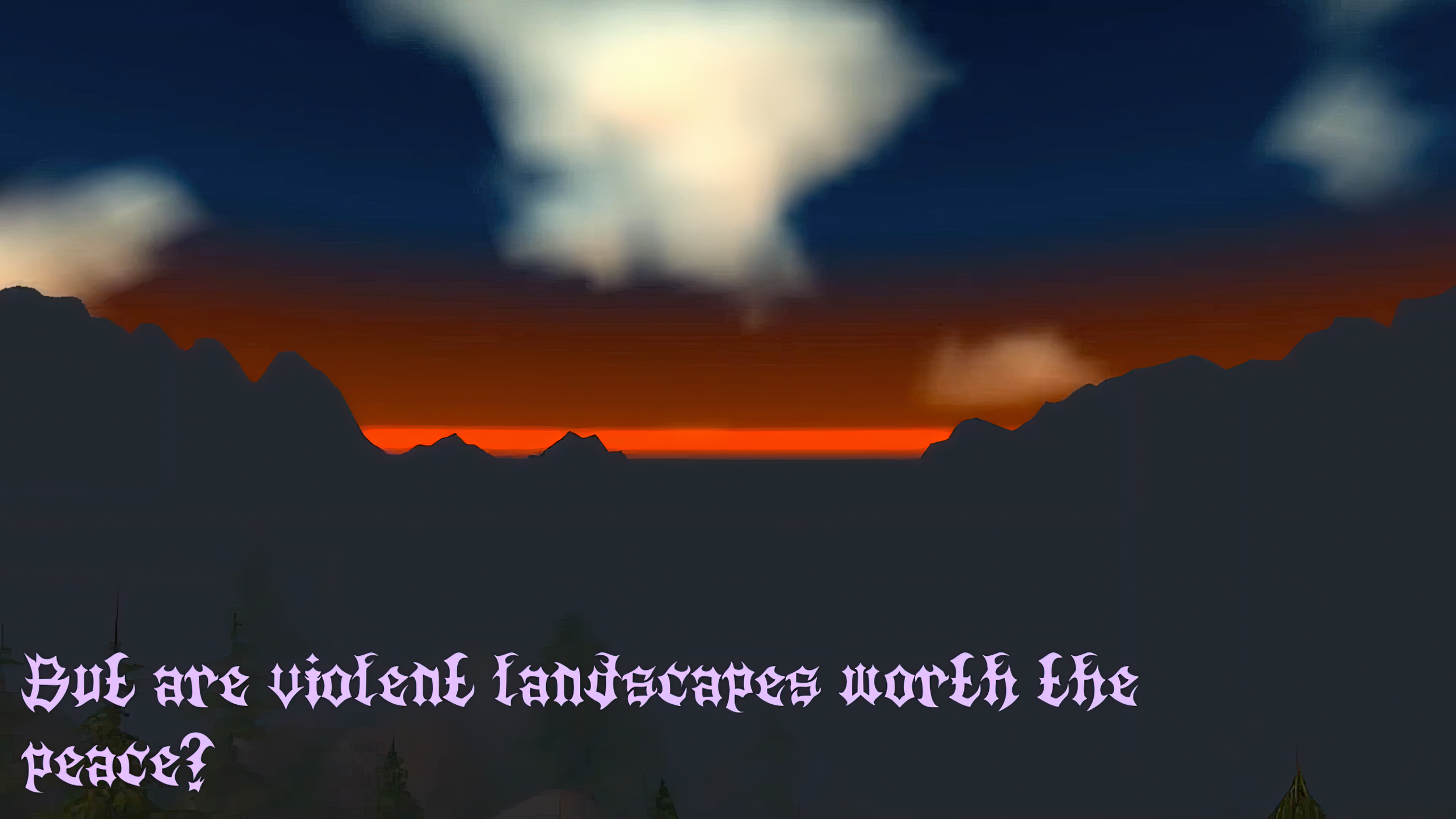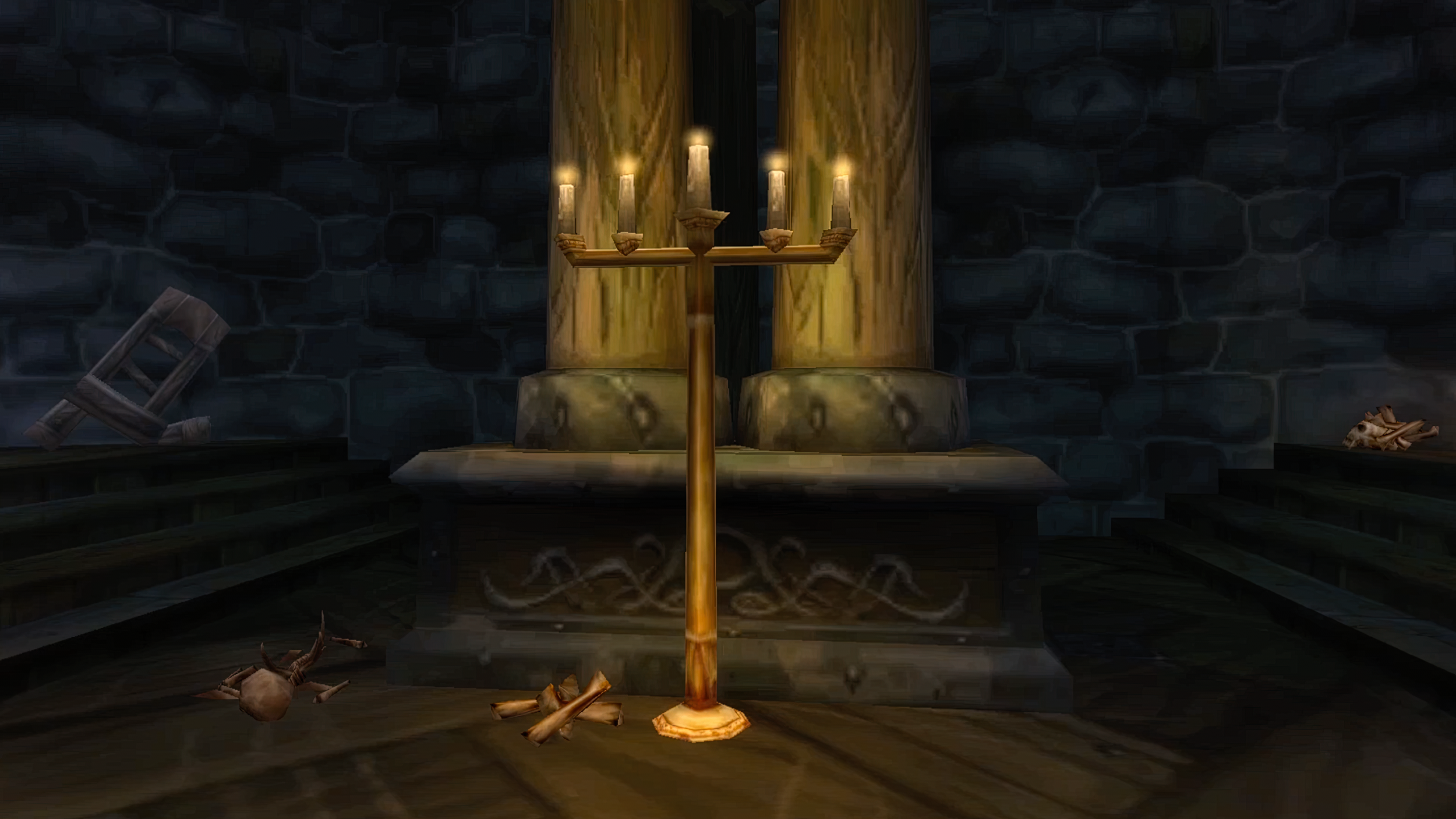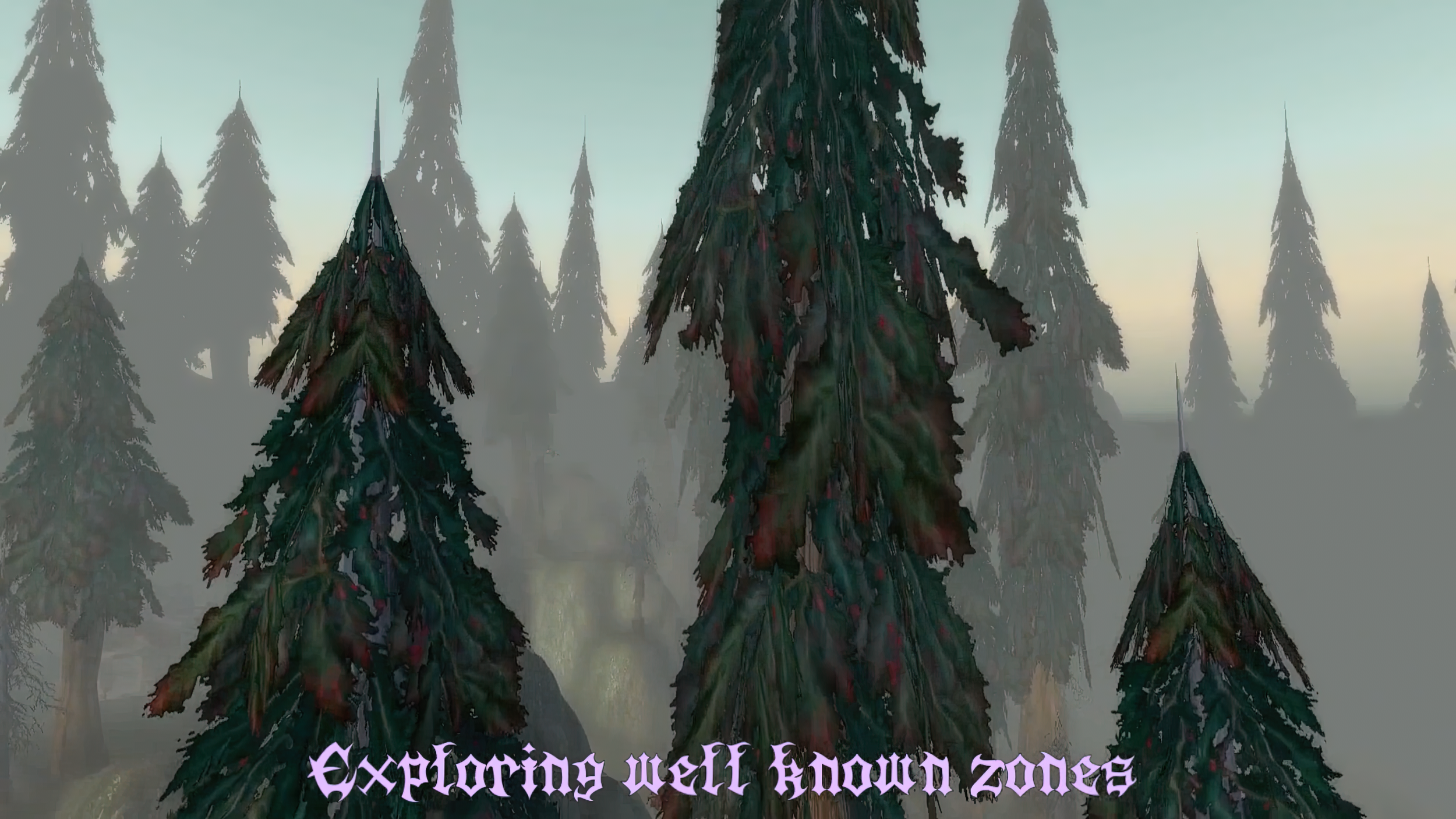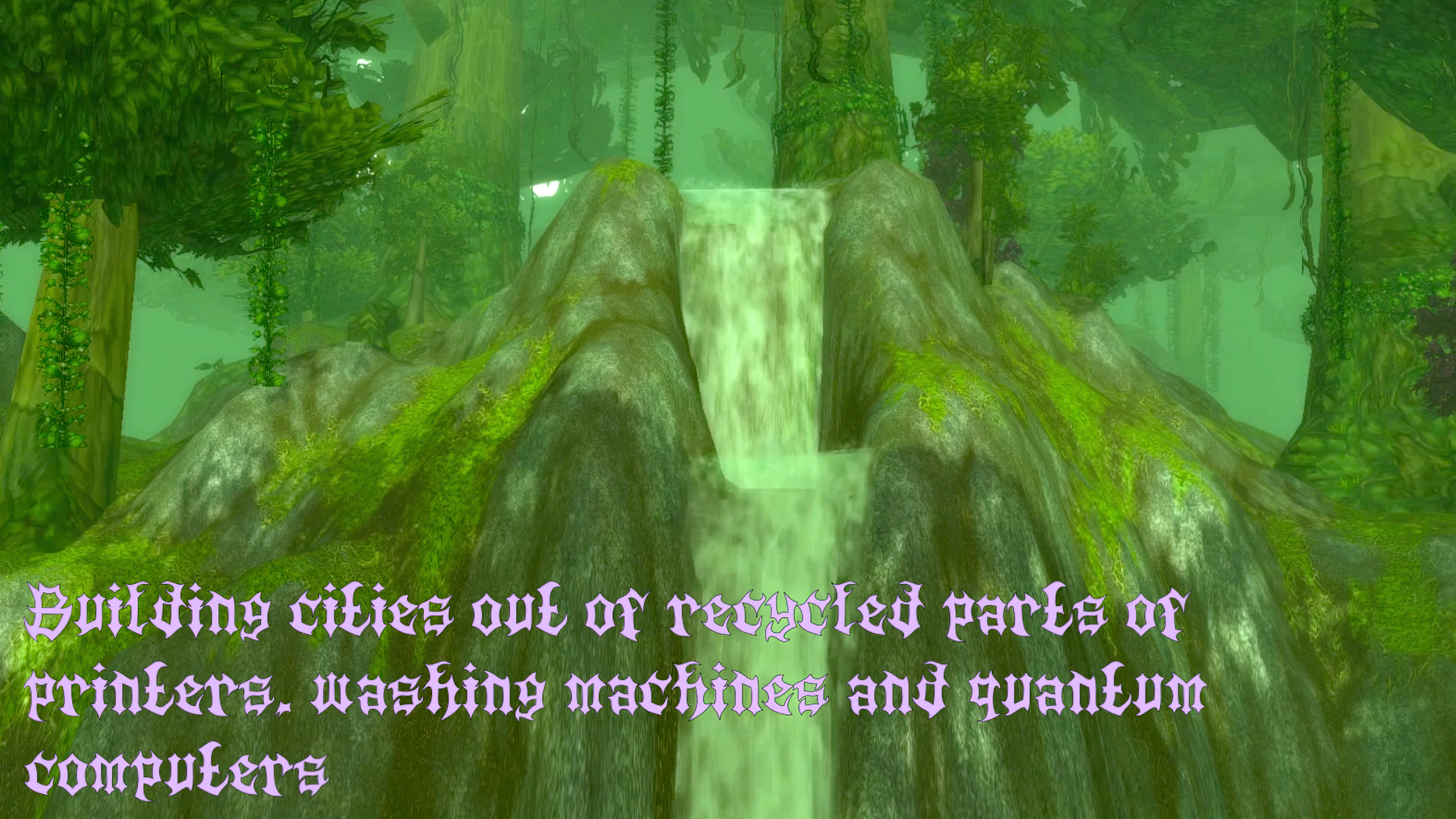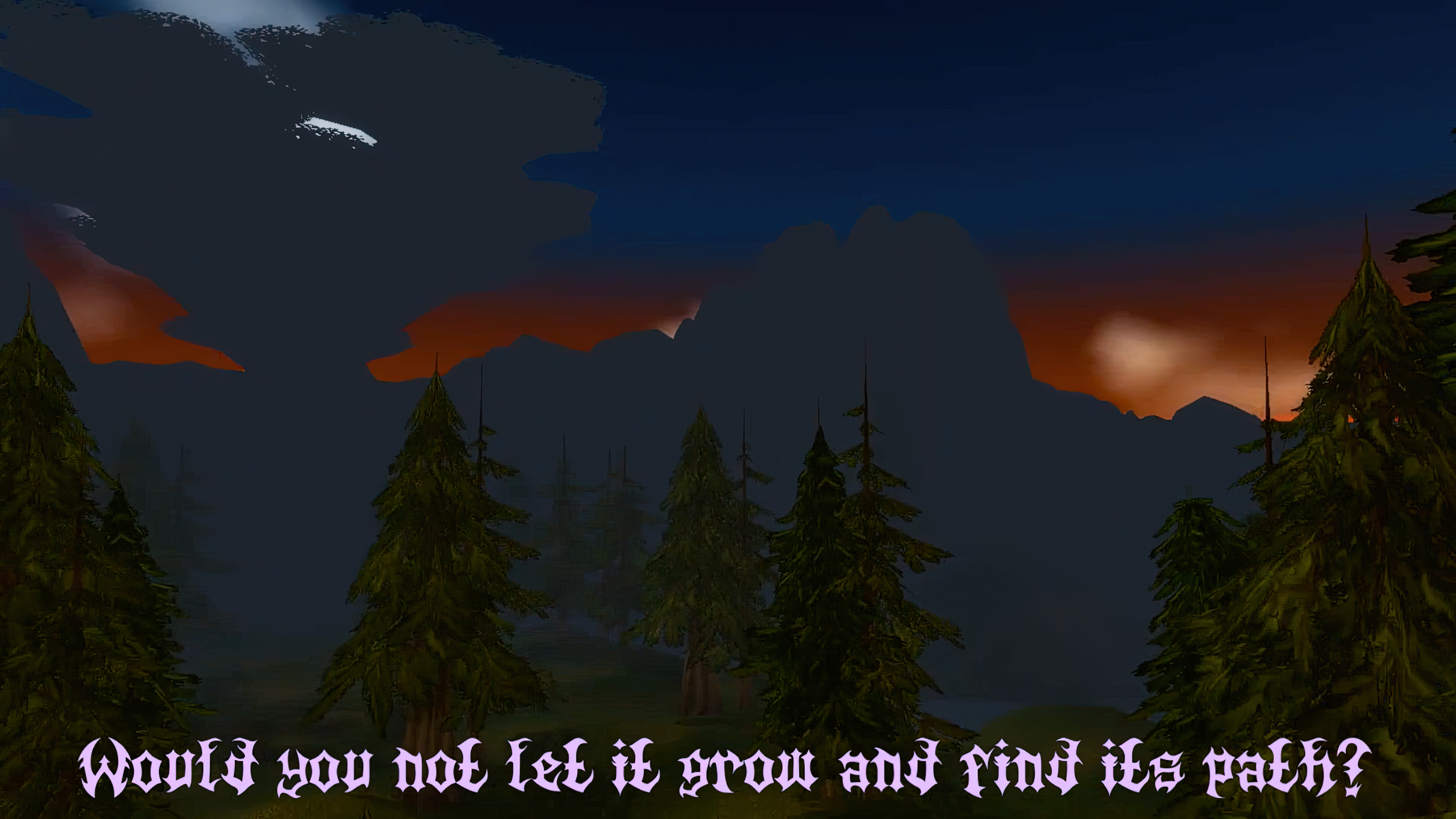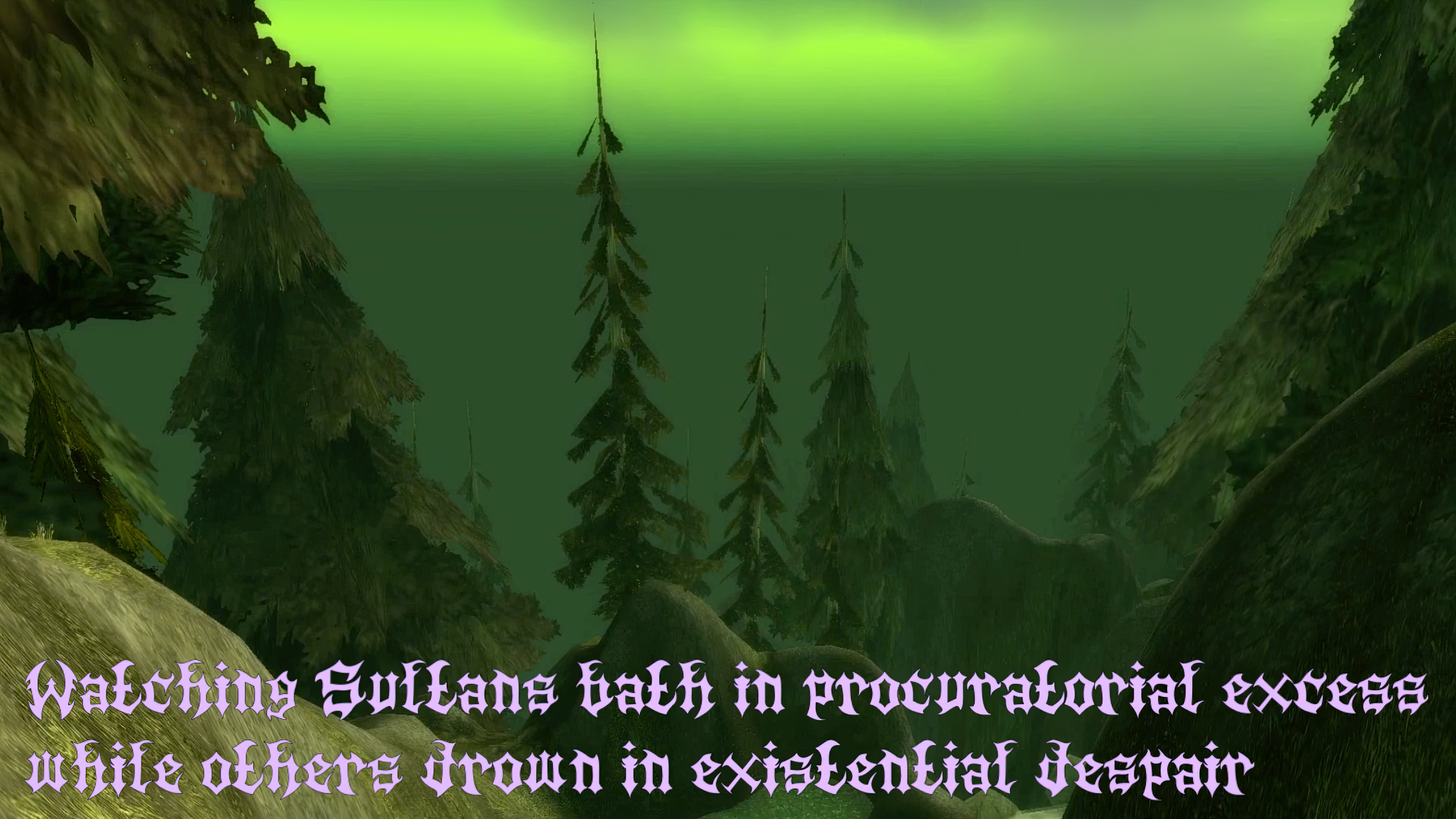The Milan Machinima Festival is proud to present Babak Ahteshamipour’s In Search of the Banned Dictionaries that contain the Words for the Things You Wish you could Express but You are Unable to With Common Words (2022) which appropriates and repurposes one of the most popular massively multiplayer role playing games of all time, World of Warcraft.
Babak Ahteshamipour’s practice is based on the collision of the virtual vs actual, aimed at correlating various topics that are not directly connected at first glance from cyberspace to ecology and politics to identity exploring them via MMORPGs/video games, social media and online integrating themes of co-existence and simultaneity in response to the futuristic anthropocentric urge of technocracy to focus on posthumanism. He has exhibited and performed at Centre Pompidou (Paris, France), New Art City (online), The Wrong (online), Sub Rosa space (Athens, Greece), ERGO Collective (Athens, Greece), arebyte (online), Biquini Wax ESP (Mexico City, Mexico), Experimental Sound Studio (Chicago, Illinois) and elsewhere. He has released music on the independent cassette label Industrial Coast and his music has been played on radio stations such as Noods Radio (Bristol, U.K.), Radio Raheem (Milan, Italy), Fade Radio (Athens, Greece) and Radio alHara. Originally from Iran, Ahteshamipour lives and works in Athens, Greece.
Matteo Bittanti discussed In Search of the Banned Dictionaries that contain the Words for the Things You Wish you could Express but You are Unable to With Common Words with Babak Ahteshamipour. Below is an excerpt:
Matteo Bittanti: What inspired you to use World of Warcraft as the primary medium to create this specific artwork, and how did you navigate the complexities of appropriating and repurposing such a well-known, sprawling online video game?
Babak Ahteshamipour: World of Warcraft is one of my favorite video games and the one I’ve spent most of my time playing so I couldn’t not incorporate it in my artistic practice, since it has shaped my identity and life in many ways. I used to play it as a kid, as a consumer , without stepping back to study its narratives, gameplay, experience and demographics. So in my broader artistic practice that includes research on ecology, politics and cyberspace I dived in to experience it as an adult and artist with a focus on those perspectives. The first thing that hit me in the face was the forced binary a player is succumbed to, that of choosing whether to play Horde or Alliance and the dual propaganda that involves this when the different stories unfold during the gameplay. Each faction has their own truth and biases towards the other and tries to brainwash their members with politics into believing the other is an enemy — a common excuse to start a war. The second thing that struck me down was despite this very dense and imposing narrative there were plenty of neutral characters that would show up during the storyline from time to time and point out that their conflict is futile and that there is no such thing as good or bad, rather that both factions have positive and dark sides. This characteristic of the WoW presenting micro-narratives to battle the main narrative reminded a lot of RL (real life), and I was amazed how many different branches unfold from the main storyline. Another thing that impressed me was how female characters were presented in the context of the game, for instance there were plenty of independent strong female figures, such as Aegwynn, Jaina, Tyrande and Sylvanas that were also reactive towards patriarchal oppression, but nevertheless there was also a lot hypersexualized portrayal of female bodies, or the heteronormative presentation of binary genders was from time to time has been very present in the game. Such an example would be the city of Shattrath with a population of 80% male bodies, which they are training for war and it gestures towards how war is male thing. The community that played the game also has a variety of opinions regarding people who identify themselves as females, some of course are very problematic, but nevertheless gaming has always been dominated by white male heterosexuals with traits of toxic masculinity just as Tanja Välisalo and Maria Ruotsalainen point out in their publication “Sexuality does not belong to the game” : Discourses in Overwatch Community and the Privilege of Belonging. Angela Washko’s The Council on Gender Sensitivity and Behavioral Awareness in World of Warcraft also points to this dimension of the community of WoW through virtual performances where they would discuss the in-game oppression of women. In Search of the Banned Dictionaries that contain the Words for the Things You Wish you could Express but You are Unable to With Common Words was created in the context of larger exhibition entitled LFM for TCOBAC: Looking for more for The Citadel of Blossom and Calamity which incorporated spell icon paintings, sculptures of the titles of some of the spells, a modified Gargoyle painting and various objects, and was presented at Sub Rosa space, from 14th of May until 28th of May of 2022, Athens, Greece. All these topics were addressed through the exhibition in more in-direct ways. The main theme of this machinima and the exhibition that came to be eventually was regarding escapism, climate crisis and the carbon footprint of cyberspace, things that were hard to appropriate WoW to talk about. Of course in the game there were plenty of references to ecology such as the Tauren and Night Elves’ respect to the “mother Earth” (Azeroth) and druid class, but I appropriated WoW in terms of that it is deserted — their subscriptions have been decreasing rapidly —, it’s a cultural product that that presents a virtual exotic world to escape from reality to and be an avatar, and it does have a carbon footprint as being a massively consumed product in terms of servers, water cooling systems, computers and so on.
(continues)
Matteo Bittanti
Work cited
Babak Ahteshamipour
In Search of the Banned Dictionaries that contain the Words for the Things You Wish you could Express but You are Unable to With Common Words
digital video/machinima, color, sound, 9’ 16”, Iran/Greece, 2022

